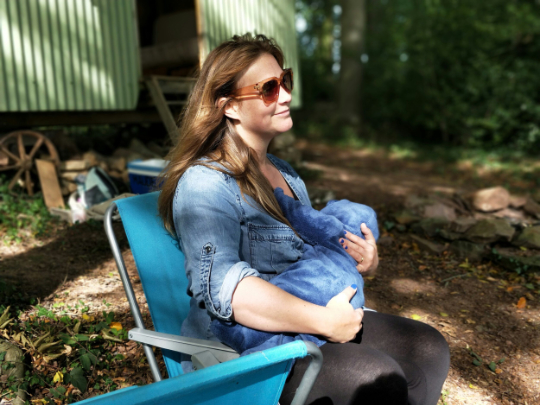
The first recommendation of the new Australian Postnatal Care Guidelines was published this week and is now open for comment. Here, Living Evidence for Pregnancy and Postnatal Care (LEAPP) Guidelines Program Manager Dr Miranda Cumpston shares a snapshot of the new recommendation on alcohol and breastfeeding and the findings that underpin it…
‘We know there’s a lot of conflicting and often confusing advice for breastfeeding mums and health professionals working in postnatal care, especially around drinking alcohol,’ Dr Miranda Cumpston says. ‘There’s a real need for clear, up-to-date and evidence-based information to inform decisions about whether or not to drink alcohol while breastfeeding or expressing breastmilk.’
‘Our new recommendation on breastfeeding and alcohol aims to provide practical guidance and helpful resources on this topic. It’s based on the NHMRC’s Australian Alcohol Guidelines that were published in 2020, and the consensus of our clinical experts, consumer panel and 26 multidisciplinary member organisations that have considered the available evidence in detail.’
In a nutshell, LEAPP experts collectively concluded that the available evidence doesn’t indicate a safe amount of alcohol that can be consumed before or during breastfeeding or expressing breastmilk for a newborn. As was the case for the recently updated LEAPP alcohol and pregnancy recommendation, the research evidence available is very limited, due to the difficulties and ethical issues involved in researching alcohol use in breastfeeding.
‘In simple terms, there isn’t enough evidence to establish a safe level of alcohol consumption, so the consensus recommendation from all our experts is not to consume alcohol while breastfeeding. At the same time, we also want to really highlight the importance of taking a supportive approach and avoiding judgement when it comes to discussing alcohol and breastfeeding. The new recommendation also includes additional information and practical guidance for breastfeeding mums who want to minimise the risk of harm by planning ahead to time feeds or express milk before drinking.’
‘We understand many people will have comments relating to this topic,’ Miranda says. ‘We encourage everyone to visit the LEAPP Australian Postnatal Care Guidelines to explore the recommendation and supporting information and resources we publish alongside it. We’re especially interested in gathering as much feedback as possible, and comments can easily be submitted directly from the Guideline via the online feedback form.’
All comments on this and other LEAPP recommendations are welcome, and are shared with the National Health and Medical Research Council (NHMRC) when the proposed recommendations are submitted for endorsement throughout the year.
‘This is the very first recommendation to be included in the new Australian Postnatal Care Guidelines. The LEAPP team is now looking at the latest evidence on mental health screening for depression, anxiety and psychosocial risk factors. We look forward to sharing our next raft of recommendations in the months to come.’
Find out more & share your feedback on the new alcohol and breastfeeding recommendation